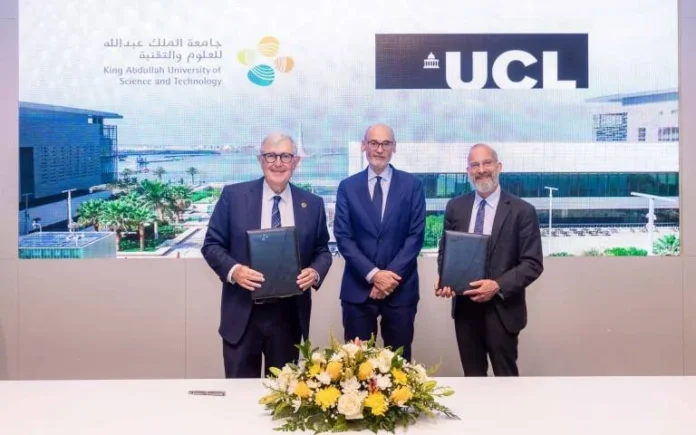University College London (UCL) strengthened its global education partnerships during a senior delegation visit to the UAE and Saudi Arabia. The trip, led by UCL President and Provost Dr Michael Spence, focused on expanding collaboration in research, entrepreneurship, and innovative learning. The delegation visited Riyadh, Jeddah, Dubai, and Sharjah in October 2025, marking UCL’s first official visit to Saudi Arabia.
During the visit, UCL signed a Memorandum of Understanding with King Abdullah University of Science and Technology (KAUST). The agreement highlights both institutions’ commitment to advancing global education partnerships through joint research, academic programs, and innovation initiatives. The MoU will support entrepreneurship, collaborative MBAs, and shared projects in areas such as vaccine manufacturing.
Dr Spence explained that UCL aims to build a globally connected community driven by innovation. He noted that the MoU with KAUST represents a step toward new models of international collaboration. The partnership will combine complementary strengths, fostering entrepreneurial education and innovation ecosystems across borders.
KAUST President Ed Byrne said the university is undergoing a transformational phase. He highlighted its focus on international hubs to enhance research, enable translational innovation, and accelerate commercialization. Byrne added that London is a crucial hub in this network, making UCL a natural partner due to its expertise in bioprocessing, health innovation, entrepreneurship, and global policy.
The delegation also hosted over 40 UCL alumni at a reception in ME Dubai. The event provided a platform for networking and celebrating UCL’s worldwide community. It emphasized how global education partnerships can connect students, alumni, and institutions across regions.
Additionally, Dr Spence met with Saudi Arabia’s Minister of Education, Vice Minister of Education, and Deputy of Scholarships in Riyadh. They discussed potential collaborations to support students, faculty, and research programs. These discussions focused on creating opportunities that foster knowledge exchange and academic excellence.
This visit reflects UCL’s strategy to expand international collaboration, strengthen innovation, and equip future leaders with essential skills. By deepening ties in the Middle East, UCL aims to advance education, research, and entrepreneurship globally.


